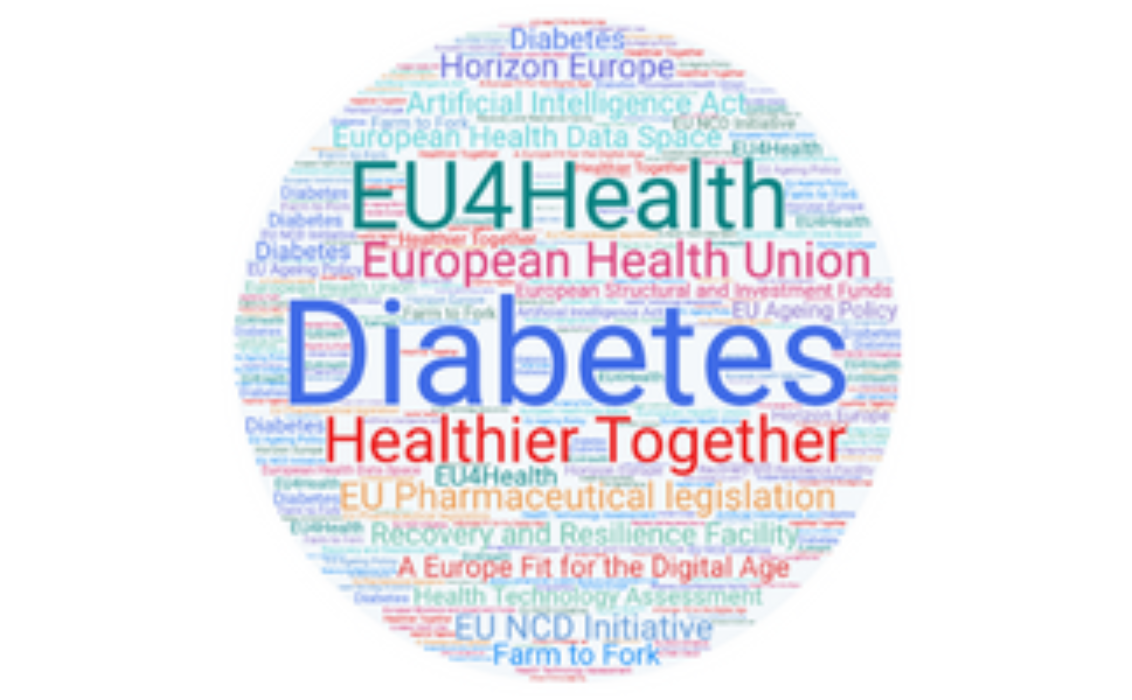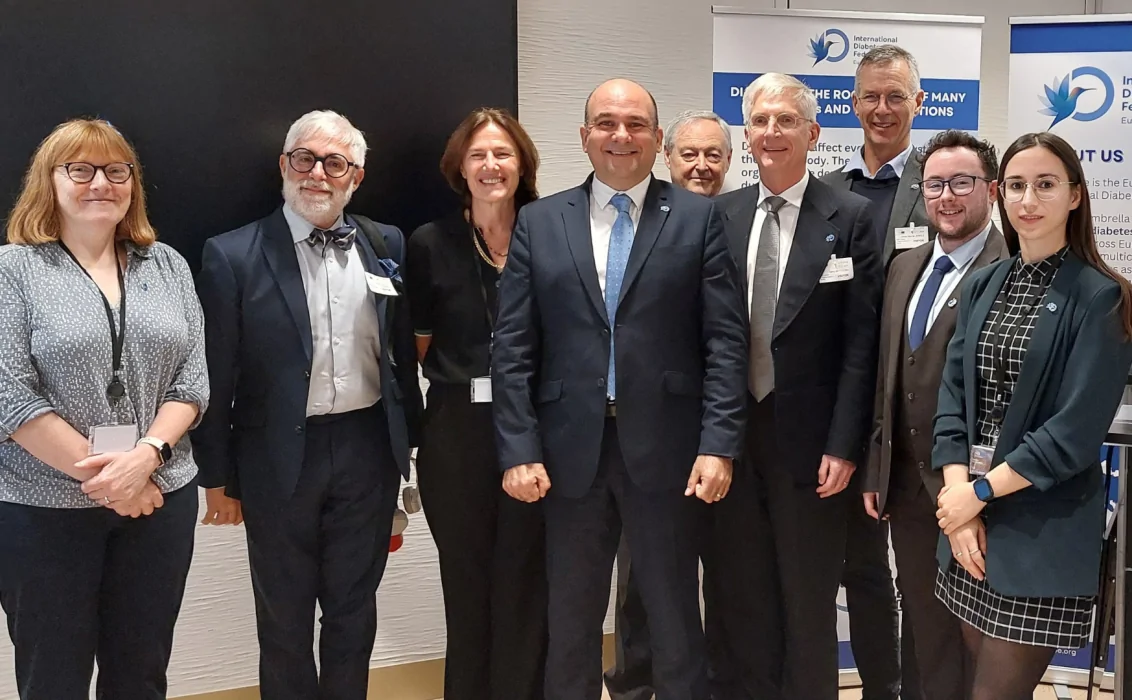IDF Europe welcomes the publication of Healthier Together – EU NCD initiative, a toolkit that aims to help Member States address the burden of NCDs.
As rightly pointed out in the document, there is a strong rationale for increasing the efforts to address NCDs, which lies in the increasing burden of NCDs and the necessity to put more – and also more ambitious – efforts in priority areas to reduce this burden.
A major NCD, diabetes is a lifelong and progressive condition that represents a substantial burden for people living with diabetes (PwD), healthcare systems and society at large. The number of adults living with diabetes in the European Union (EU) has almost doubled over the last two decades, from about 16.8 million in 2000 to 32.3 million in 2019. Ambitious policies supporting the development of health-enabling environments, tackling social and health inequalities and promoting early action are urgently needed to better prevent, detect and treat diabetes and ultimately, improve people’s quality of life and health outcomes.
As mentioned by Commissioner Stella Kyriakides in her opening remarks, diabetes, CVD, chronic respiratory disease, mental health and neurological disorders are interconnected. “It, therefore, makes sense to have a comprehensive initiative looking at the drivers that lead to disease, and the levers we can use to reduce their impact.”
Strategies to lower the risk of developing the non-autoimmune forms of diabetes (Type 2 diabetes) and optimising management across all types of diabetes benefit everyone’s health and well-being. Therefore, we welcome the Initiative’s recommendation to implement national diabetes plans that include interventions for high-risk populations as well as targeted community-based strategies according to people’s health literacy level, information needs, preferences for educational support and (digital) skills.
In the EU, 1 in 3 adults are undiagnosed and by the time of diagnosis, many have already developed one or more complications. Therefore, we also welcome the Initiative’s suggestions to reduce undiagnosed diabetes by raising awareness, screening high-risk individuals and using early detection approaches. Screening and early action can be improved through strengthening primary care and optimising data collection and analysis. notably with increased investments in more comprehensive data and data management/artificial intelligence capabilities. Population-level data that takes into account both healthcare and non-healthcare data (e.g., socio-economic) can be used by healthcare systems to identify people with the greatest need and ensure they receive care and support in a timely manner.
IDF Europe also welcomes the third identified area of action on preventing or delaying diabetes-related complications by ensuring (access to) high-quality diabetes care, and supporting PwD’s empowerment and self-management. For PwD, achieving the best possible health outcomes and enjoying the highest possible quality of life is contingent upon their ability to access the medicines, supplies, technologies and care they require on an uninterrupted basis. It is unacceptable that people across Europe still face significant inequalities in access to care, even more so exacerbated by recent advances in treatment options and new technologies and tools.
IDF Europe also supports the use of user-generated, real-world data in diabetes registries and/or diabetes information systems, which have the potential to improve care outcomes. This should go hand in hand with empowering people with diabetes and providing self-management support. Digital tools (e.g., web portals, telemedicine, digital services) can support people’s autonomy, self-management and strengthen empowerment.
We also welcome the Initiative’s recommendation for Member States to implement innovative care models that adopt a proactive (prevention oriented) person-centred, integrated care approach, and implement Patient-Reported Outcome and Experience Measures (PROMs, PREMs) to monitor quality from the PwD’s perspective.
IDF Europe commends the European Commission’s Healthier Together Initiative for addressing NCDs in a structured and comprehensive way.
Yet, we believe there is an urgent need to shift from the simplistic and erroneous assumption that diabetes is simply a lifestyle disease, which can easily be managed with a bit of effort on the part of the individual. While the risk of developing type 2 diabetes and diabetes-related complications can be lowered for many people, this is simply not the case for all, and it does require joined, and concerted, action on the part both of the individual and of the healthcare system.
In designing future-proof, resilient healthcare models, we urge policy-makers to acknowledge the complexity of the disease, the impact of social inequalities and the psychological burden of a life-long condition that requires round-the-clock management.
We also call on the Commission to take on a bolder leadership on the topic of NCDs, and to go beyond its current action and towards a broader framework, driven by key performance indicators and an implementation roadmap.
IDF Europe is committed to providing expertise and collaborating further with the European Commission, Member States, international organisations and relevant stakeholders during the implementation phase of the Healthier Together – EU NCD Initiative.



